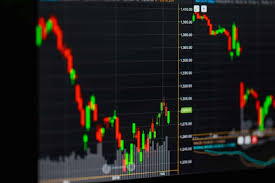
In the fast-evolving world of financial markets, the Forex market stands out as one of the most dynamic and accessible for traders globally. The term “Forex” refers to the foreign exchange market, where currencies are traded in a decentralized marketplace. However, it is the advancement of technology, particularly software trading platforms, that has transformed the landscape of Forex trading over the past few decades. Among many resources available, forex software trading Trading Uganda is a notable platform that provides valuable insights and tools for traders seeking to navigate the complexities of Forex trading.
The evolution of Forex trading software can be traced back to the inception of computerized systems in the late 20th century. Originally, trading was conducted manually through brokers, which meant that access to market information and trading capabilities was limited to those with substantial capital and resources. With the rise of technology, however, trading became democratized, allowing individual retail traders to participate in the Forex market.
The Role of Forex Trading Software
Forex trading software serves as a vital tool for both novice and experienced traders. It streamlines the trading process, offers analytical tools, and enhances decision-making capabilities. The software can be categorized into different types:
- Trading Platforms: These are the interfaces traders use to execute trades. Popular examples include MetaTrader 4 (MT4), MetaTrader 5 (MT5), and cTrader. These platforms provide users with charts, analysis tools, and the ability to execute trades in real-time.
- Automated Trading Systems: These systems, often referred to as trading robots or Expert Advisors (EAs), are programmed to execute trades based on predefined criteria. They allow traders to automate their strategies and operate continuously, even when they are not actively monitoring the market.
- Signal Services: These services provide traders with buy and sell signals based on market analysis. Forex signal providers can be highly beneficial for traders who may lack the expertise to perform in-depth technical analysis.
- Risk Management Tools: Effective risk management is critical in Forex trading. Various software products help traders set stop-loss orders, take-profit levels, and manage their overall exposure in the market.
Advantages of Using Forex Software
Incorporating software into Forex trading strategies comes with several advantages:
1. Accessibility and Convenience
Today’s Forex software can be accessed from various devices, including desktops, laptops, and mobile devices, allowing traders to participate in the market from anywhere in the world. This convenience means that traders can quickly react to market changes, which is critical in a market characterized by high volatility.
2. Speed and Efficiency
In Forex trading, even the slightest delay can impact profits. Trading software significantly reduces execution times, facilitating rapid order placement and customized transactions.
3. Enhanced Analysis
Modern Forex software provides an array of analytical tools and indicators that help traders evaluate market trends, patterns, and signals more effectively. This analytical capability is vital for making informed trading decisions.
4. Risk Management
Risk management tools integrated into trading software help traders protect their investments. By setting stop-loss orders and managing leverage appropriately, traders can minimize potential losses and protect their capital.

Choosing the Right Forex Software
As the market for Forex software expands, choosing the right one can be challenging. Here are some considerations to keep in mind when selecting a trading platform:
1. User-Friendly Interface
The software’s interface should be intuitive and easy to navigate. Novice traders may find complex platforms overwhelming, so a user-friendly system is crucial for a smooth trading experience.
2. Reliability and Security
Your trading platform must be secure and reliable. Ensure that the software provider employs robust security measures to protect your data and funds. Additionally, stable performance without downtime is essential during trading sessions.
3. Range of Features
Different traders have different needs. A robust platform should offer a range of features, including charting tools, analytics, and customization options, allowing traders to tailor their experience based on their trading strategies.
4. Customer Support
Effective customer support can make a significant difference in your trading experience. Look for platforms that offer reliable support through various channels, including email, chat, and phone. This can help resolve any issues that may arise while trading.
The Future of Forex Software Trading
The future of Forex trading will likely see further advancements in technology, especially with the integration of artificial intelligence (AI) and machine learning. These technologies promise to enhance decision-making capabilities, allowing traders to analyze vast amounts of data and derive insights at unprecedented speeds.
Moreover, with the continued growth of mobile trading, software platforms will increasingly focus on improving mobile functionalities, ensuring that traders can execute trades and monitor their investments seamlessly from their smartphones.
Conclusion
In conclusion, Forex software trading has revolutionized how individuals engage with the currency markets. With the abundance of resources, tools, and platforms available, traders now have the opportunity to access the Forex market like never before. However, while software can enhance trading efficiency and decision-making, it is essential for traders to continue honing their skills and staying informed about market dynamics. As platforms like Trading Uganda continue to provide valuable resources to traders, the journey into the world of Forex trading is likely to become even more enriched and empowering.




Leave a Reply